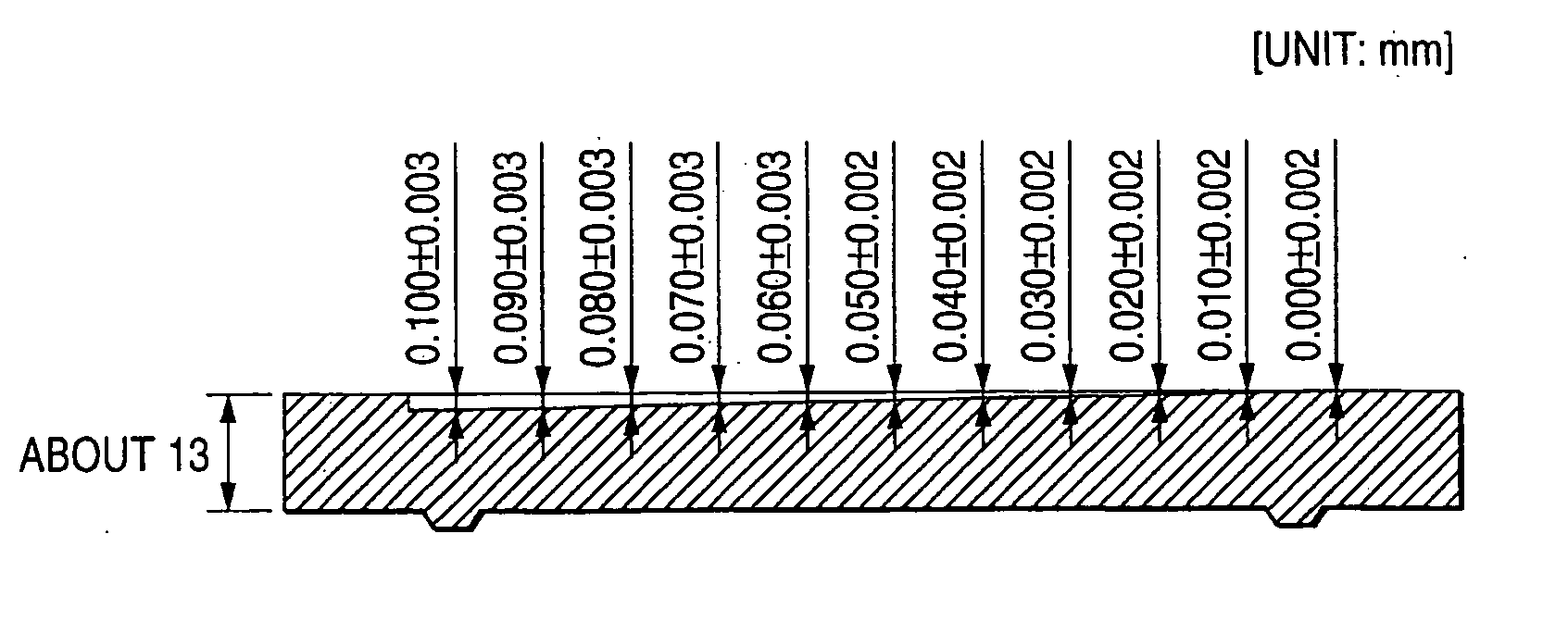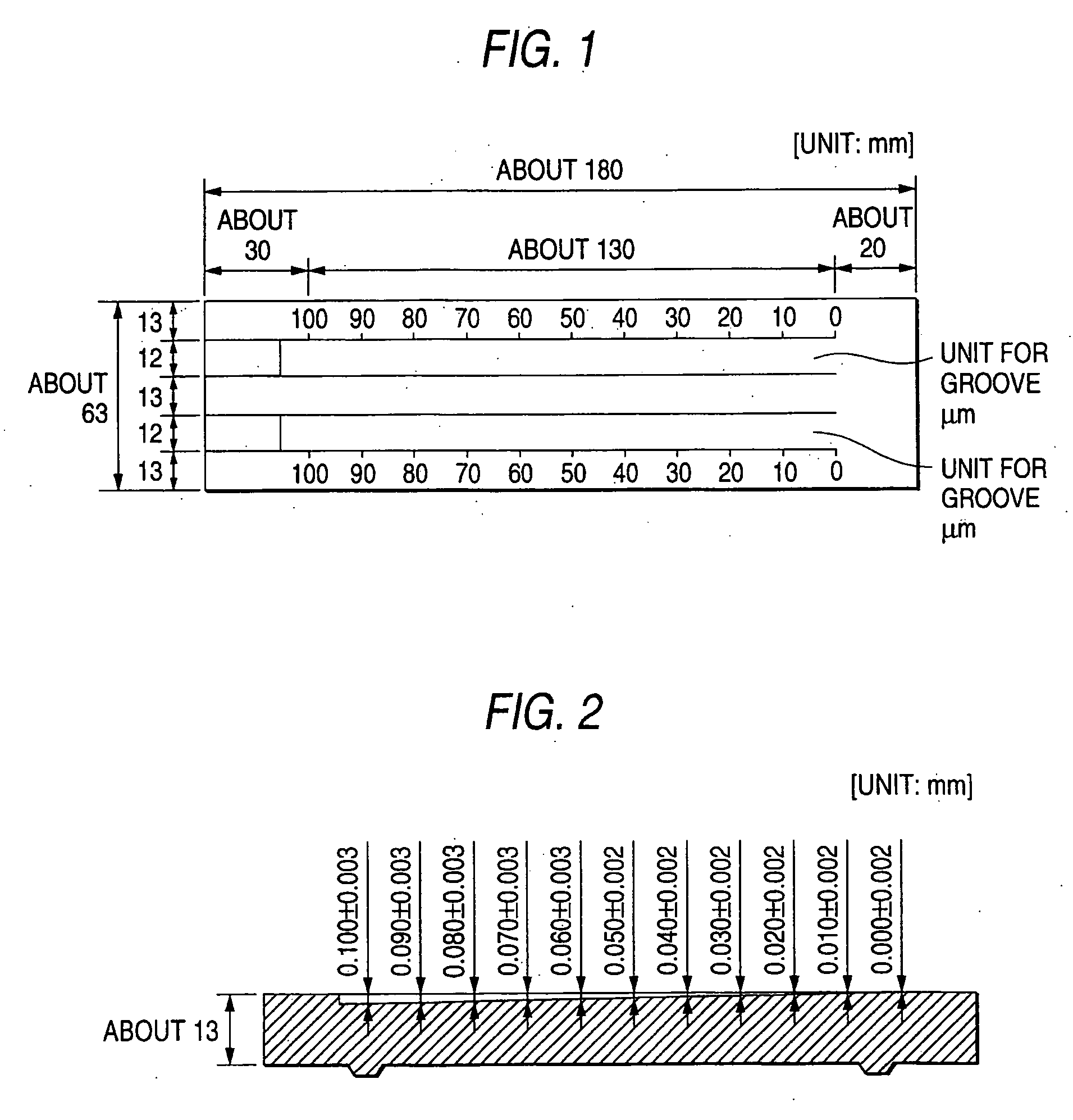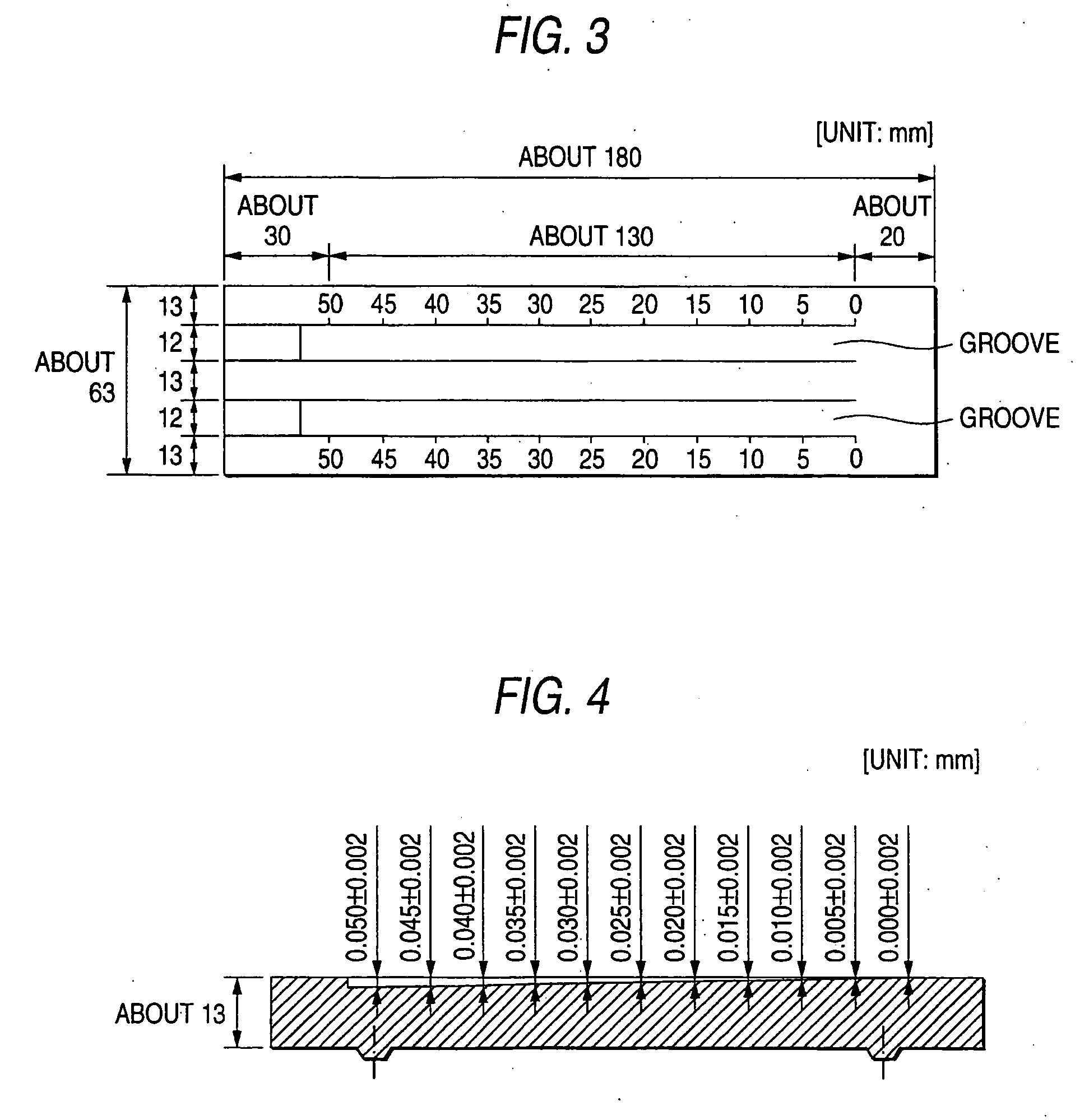Negative electrode for lithium secondary battery and lithium secondary battery
a secondary battery and negative electrode technology, applied in the field of negative electrodes for lithium secondary batteries and lithium secondary batteries, can solve the problems of reducing the thickness of the electrode, the reduction of the battery life and safety, and the inability to exhibit excellent high-output characteristics of lithium secondary batteries, so as to improve the safety, prolong the life, and reduce the thickness
- Summary
- Abstract
- Description
- Claims
- Application Information
AI Technical Summary
Benefits of technology
Problems solved by technology
Method used
Image
Examples
example 1
[0151] A graphite powder was mixed with a petroleum heavy oil obtained in the thermal cracking of naphtha. This mixture was subjected to a carbonization treatment at 900° C. in an inert gas. Thereafter, the resultant sinter was pulverized / classified to thereby obtain an amorphous-material-coated graphite comprising graphite particles whose surface had been coated with amorphous carbon. In the classification treatment, sieving with an ASTM 400-mesh sieve was repeated 5 times in order to prevent the inclusion of coarse particles to thereby obtain a negative-electrode active-material powder comprising the amorphous-material-coated graphite. It was ascertained from the actual carbon ratio that the negative-electrode active-material powder obtained was constituted of 100 parts by weight of graphite and 2 parts by weight of amorphous carbon with which the graphite was coated.
[0152] This active-material powder was subjected to X-ray analysis, Raman spectrometry, examination with a laser d...
example 2
[0170] A negative-electrode active-material powder was prepared in the same manner as in Example 1, except that an amorphous-material-coated graphite powder constituted of 100 parts by weight of graphite and 8 parts by weight of amorphous carbon was produced. Various evaluations were conducted in the same manner as in Example 1. The results thereof are shown in Table 3.
example 3
[0171] A negative-electrode active-material powder was prepared in the same manner as in Example 1, except that an amorphous-material-coated graphite powder constituted of 100 parts by weight of graphite and 18 parts by weight of amorphous carbon was produced. Various evaluations were conducted in the same manner as in Example 1. The results thereof are shown in Table 3.
PUM
 Login to View More
Login to View More Abstract
Description
Claims
Application Information
 Login to View More
Login to View More - R&D
- Intellectual Property
- Life Sciences
- Materials
- Tech Scout
- Unparalleled Data Quality
- Higher Quality Content
- 60% Fewer Hallucinations
Browse by: Latest US Patents, China's latest patents, Technical Efficacy Thesaurus, Application Domain, Technology Topic, Popular Technical Reports.
© 2025 PatSnap. All rights reserved.Legal|Privacy policy|Modern Slavery Act Transparency Statement|Sitemap|About US| Contact US: help@patsnap.com



